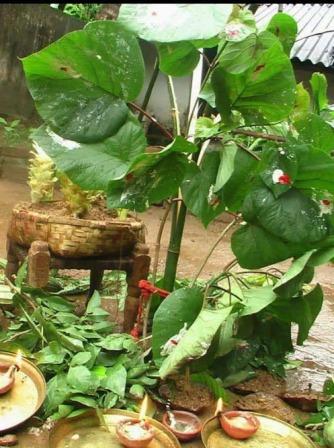Baripada/Champua: Amid the pandemic, the Karama festival celebrated by tribal communities in various parts of Mayurbhanj, Keonjhar, Sundargarh, Sambalpur and Bolangir districts was a low key affair this year.
The festival meant to celebrate man’s bonding with Nature is observed by tribal communities like Kudumi, Munda, Oram, Bhumija Kishan, Kol, Oraon, Bhuyan, and Binjhals.
The festival is celebrated on Bhadrava Ekadasi (August -September).
Karama tree is the central part of the festival.
The presiding deity of this festival is either a god called “Karam” or a Goddess called “Karamasani” which is represented by a branch of Karama tree.
As part of the ritual, people throng into nearby forests amid beating of drums and playing of traditional musical instruments. They cut branches of the Karama tree. As per customs, young girls carry the branches singing paeans to the deity. Then the branches are brought to the village and planted in the centre of the ground which is plastered with cow-dung and decorated with flowers.
A tribal priest offers germinated grains and pulses and liquor to propitiate the deity so as to get divine grants for wealth and children.
A fowl is also sacrificed and blood is offered to the branch. Then the tribal priest narrates a legend to the villagers about the festival.
Devotees go without food five days before the festival.
According to folklore, ‘Karama’ celebrates man’s close bonding with Nature. Tribes worship trees during this festival and pray to Mother Nature to keep their farmlands green and ensure a good harvest. It is believed that the worship for good germination increases the fertility of grain crops. Tribals go on merrymaking by dancing and singing round a Karama tree in the courtyard amid beating of madala (a popular percussion instrument).
PNN
